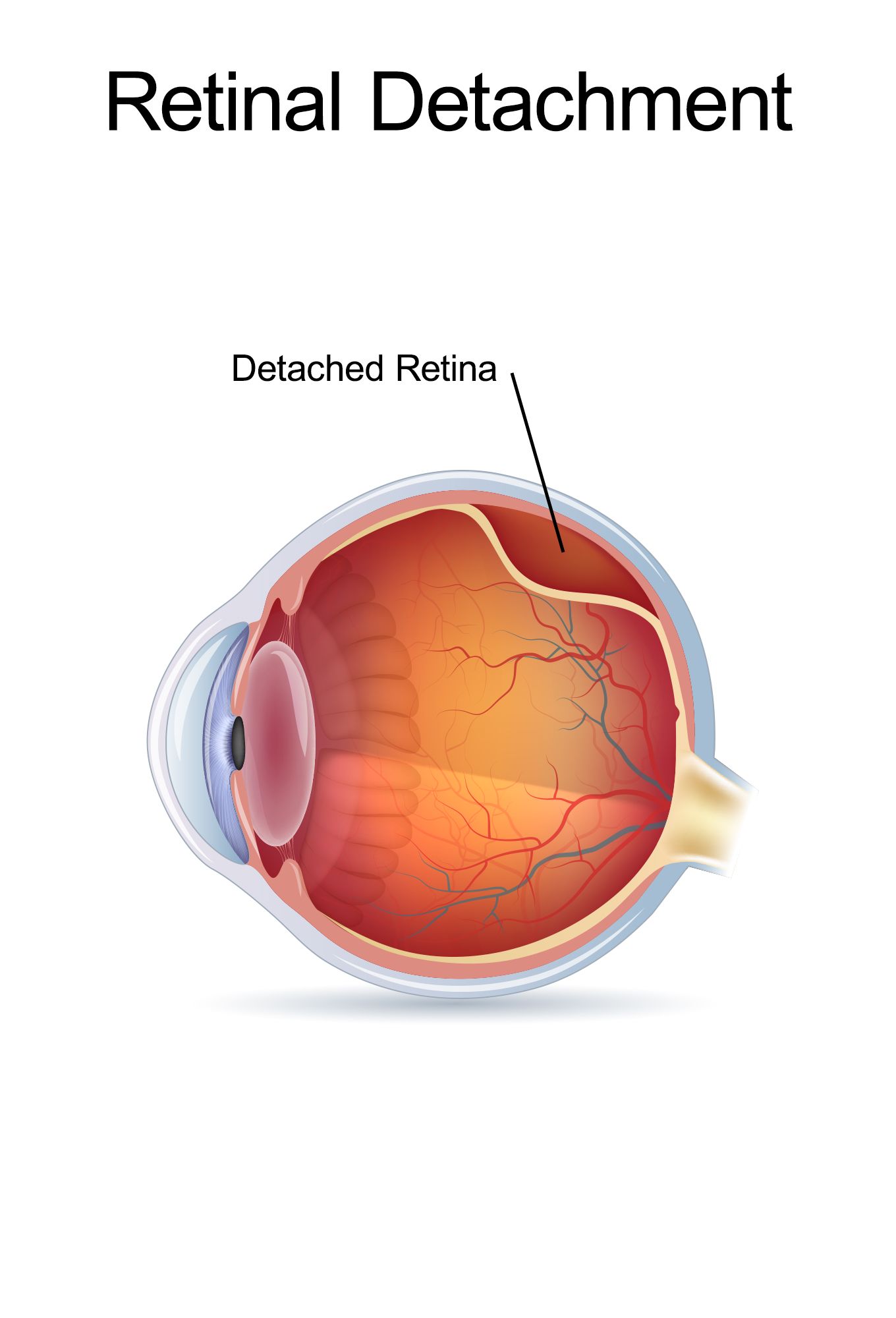Retinal Detachment Symptoms: Knowing What to Look For
 Here at Choate Eye Associates, we believe in helping patients in and around Nashville experience the best eyesight possible. This means providing expert eye care, thorough eye exams, and providing all of our patients with information about serious eye conditions and how they can be detected and prevented.
Here at Choate Eye Associates, we believe in helping patients in and around Nashville experience the best eyesight possible. This means providing expert eye care, thorough eye exams, and providing all of our patients with information about serious eye conditions and how they can be detected and prevented.
Retinal detachment is one such eye condition that should never be taken lightly, especially because it can cause severe vision loss. Let's cover the signs, symptoms, and risk factors of retinal detachment so you know what to look for and when to get help.
What Is Retinal Detachment?
The retina is the light-sensitive tissue located at the back of your eyes essential for proper vision.
Retinal detachment describes a condition in which this tissue peels or tears from the back of the eye, causing the tissue to experience oxygen deprivation.
Retinal detachment may be caused by serious injuries and trauma, inflammation of the eye, side effects of advanced diabetes, and shrinkage of the vitreous gel inside of the eye. Advanced age can make retinal detachment more likely in many cases.
It's important that retinal detachment be treated as soon as possible should it be detected or suspected.
What Happens If Retinal Detachment Goes Untreated?
The longer that the retina is deprived of oxygen, the more likely a patient will experience permanent vision loss. The vision loss that a person experiences is irreversible, so it's imperative that treatment be sought right away.
The good thing is that there are very distinct signs and symptoms of potential retinal detachment.
Signs and Symptoms of Retinal Detachment
The most common signs and symptoms of retinal detachment include:
- Sudden appearance of multiple floaters and spots
- Sudden flashes of light
- Darkness like a curtain falling over part of your field of vision
Be sure to seek immediate medical attention should you experience these symptoms. Acting quickly can keep your eyes healthy and can protect your vision.
Risk Factors for Retinal Detachment
Potential risk factors of retinal detachment include:
- Advanced age
- Diabetes
- Family history of retinal detachment or tears
- Previous issues with retinal detachment or tears
- Previous serious injury or trauma
- Previous eye diseases or disorders
- Extreme nearsightedness (myopia)
Keep these risk factors in mind if you notice any signs or symptoms of the condition.
Can My Vision Be Restored?
As noted above, the vision loss from retinal detachment is irreversible. If you do lose some of your vision due to retinal detachment or retinal tears, an eye doctor can suggest methods of adapting to your compromised vision and how best to move forward in life.
Challenges lay ahead, but you can rest assured that we will be here to help you face them.
Can Retinal Detachment Be Prevented?
The best way to prevent retinal detachment is to wear proper eye protection when playing sports or engaging in any sort of work that could potentially lead to eye injury. If you are a diabetic, it's important that you properly monitor your health.
As you get older, be sure to undergo regular eye exams. These can help identify potential risks of retinal problems and allow you to prevent major vision and ocular health problems.
Learn More About Conditions Affecting Your Retinas
If you would like to learn more about treating and avoiding retinal detachment, be sure to contact our eye care and advanced optometry center today. Here at Choate Eye Associates, we will work closely with you to ensure you receive optimal eye care that promotes total wellness.




